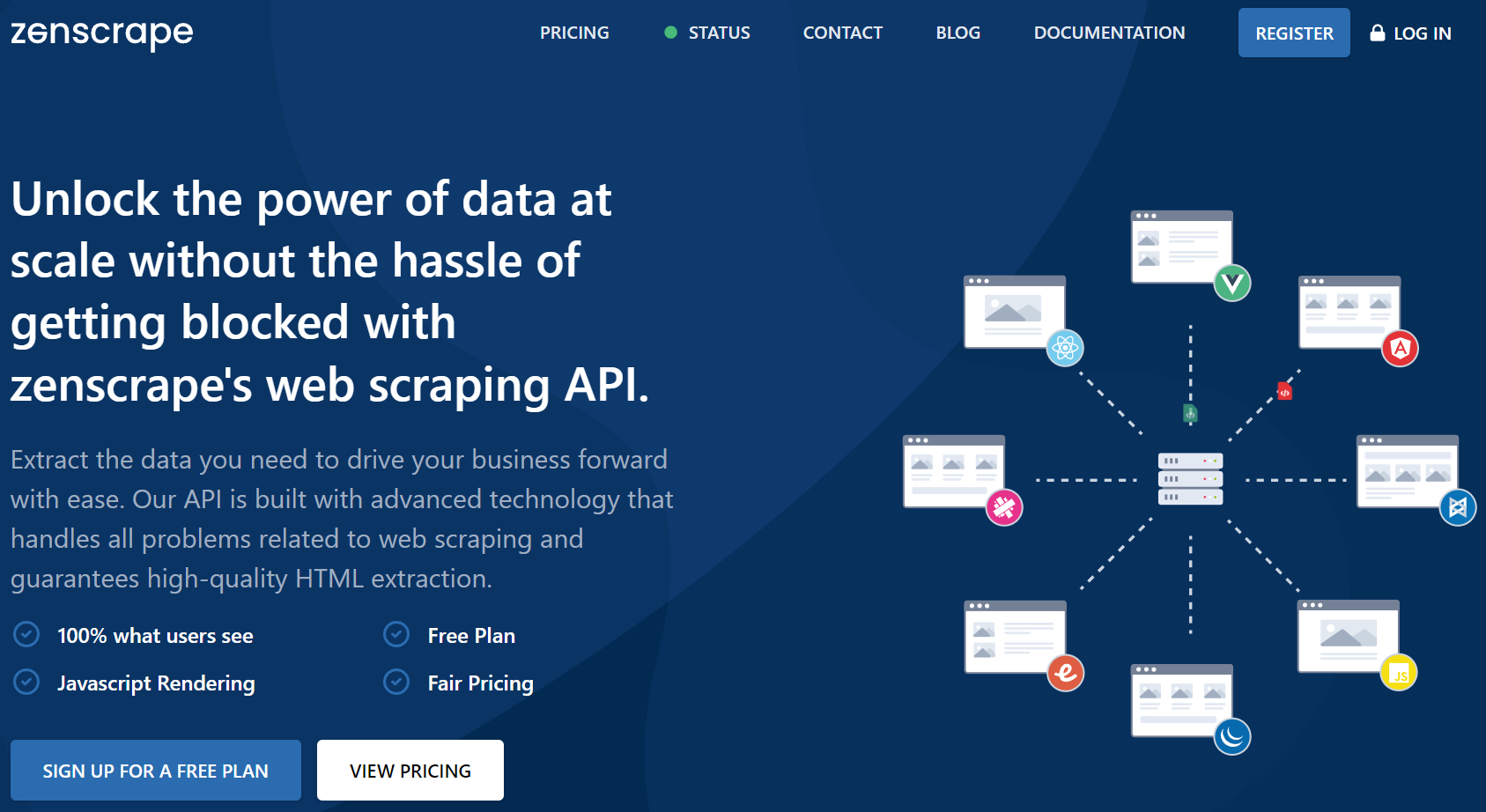With web scraping applications, developers scrape data from almost every page. This also includes search engines and social media apps that are hard to scrape. Scraping web pages with Python is the most popular method for developers today. With web scraping with Python, developers can obtain the data they need quickly and automatically.
There are many things to consider when performing scraping web pages with Python. Additionally, there are many ways to perform web scraping with Python. We have prepared a powerful web scraping Python tutorial for you in this article. Firstly, we will discuss what to consider when developing a web scraping code. Then, we will list the options for web scraping with Python.
What Should be Considered when Developing Python Web Scraping Code?
The first topic of creating a powerful Python web scraping tutorial should always be considerations when developing web scraping code. When developing web scraping code manually, it is very important to develop code by following the items below.
Proxy Usage
A proxy is a tool that developers use in their web scraping applications to hide their IP addresses or avoid IP addresses being blocked. The proxy server acts as a bridge between the client and the target web server. It forwards clients’ requests to the target website and forwards the responses back. With the use of a proxy, developers can easily bypass geo-restrictions.
IP Rotation
IP rotation is the process of regularly changing IP addresses used during web scraping. IP rotation enhances privacy and security. It also increases the speed of web scraping processes.
Intermittent Web Scraping
Intermittent web scraping is the process by which web scraping applications distribute requests to the target website at a specified time interval. This process reduces the demand intensity. With this method, developers can make web scraping more regular and sustainable without affecting the performance of the website.
What Are the Options for Building a Web Scraper in Python?
There are many good web scraping libraries that Python provides us with nowadays. In this section, we’ll go over a few of these libraries and a web scraping API in Python.
BeautifulSoup
BeautifulSoup is a Python library used in the Python programming language. This library allows developers to parse HTML, XML, and web pages. It is widely used for web scraping. BeautifulSoup offers simple and flexible use, making it easy to select, extract and manipulate the content of web pages.
In web scraping applications developed with BeautifulSoup, developers have to do settings like proxy and IP rotation manually.
To use the BeautifulSoup library, it is necessary to download it with the following code.
pip install beautifulsoup4The codes for a web scraping application developed using BeautifulSoup are as follows.
from bs4 import BeautifulSoup
import requests
# Proxy, IP, etc. configuration
url = "https://www.example.com"
response = requests.get(url)
soup = BeautifulSoup(response.content, "html.parser")
# Example: Print H1 in page
titles = soup.find_all("h1")
for title in titles:
print(title.text)Requests
Requests is a simple Python library for developers to send HTTP requests and pull content from web pages. It is quite simple to use. This library does not come with Python by default. To use the Requests library, it is necessary to download it with the code below.
pip install requestsDevelopers need to do proxy and IP rotation in web scraping applications they develop with Requests. Developers need to think through all the configurations that will suit their needs and add them to their web scraping applications.
The codes for a web scraping application developed using Requests are as follows.
import requests
# Proxy, IP, etc. configuration
url = "https://www.example.com"
response = requests.get(url)
# Example: Print content of the page
print(response.text)Zenscrape API
Zenscrape API is the most popular web scraping API today. This API allows developers to scrape data from the internet quickly and simply.
This API integrates with all programming languages today, especially Python. It makes all the adjustments that developers have to configure when using Python libraries in web scraping processes. Like proxy tweaks and location-based web scraping. It allows web scraping processes to be automated. It also easily scrapes data from websites that implement CAPTCHAs, IP blacklists, and all other anti-bot measures. Moreover, this API provides developers with JavaScript rendering. Thus, developers scrape the data they see on their target websites. This increases data accuracy.
We need an API key to quickly integrate and use this API in the Python programming language. For this, let’s sign up for one of the subscription plans that Zenscrape offers us.
After obtaining the API key, we can quickly perform web scraping with the code below.
import requests
headers = {
"apikey": "YOUR-API-KEY"}
params = (
("url","https://www.example.com/"),
("premium","true"),
("country","de"),
("render","true"),
);
response = requests.get('https://app.zenscrape.com/api/v1/get', headers=headers, params=params);
print(response.text)Learn more in our comprehensive documentation.
Conclusion
All in all, it is more advantageous for developers who want to perform web scraping with the Python programming language to use a web scraping API. Using the web scraping API frees developers from many configuration-intensive processes. Besides, using this API gives developers a seamless data scraping experience without risk.
See our free and comprehensive web scraping API, and get the advantage in your web scraping.
FAQs
Q: What Are the Benefits of Extracting Data in a Web Page with Python?
A: Python programming language provides many benefits to developers in their web scraping process. Some of these benefits are as follows:
- Convenience and Rapid Development
- Rich Python Library Ecosystem
- Multi-platform Support
- Powerful Tools for Data Analytics and Visualization
- Community and Resources
Q: What Should be Considered in a Web Scraping Project?
A: There are some issues that developers should consider when developing a web scraping project. The main ones of these issues are as follows:
- Proxy Usage
- IP Rotation
- Intermittent Web Scraping
- Exception Handling
- Choosing the Right Path
Q: Why Should a Web Scraper Use a Proxy?
A: The use of a proxy for a web scraper application that collects data from web pages provides significant advantages. First, using it helps web scraping apps hide IP addresses. It then blocks those web servers from blocking IPs. Finally, web scraping apps that use a proxy can easily bypass geo-restrictions.
Q: Is the Zenscrape API Easily Integrated into Python and JavaScript Code?
A: Yes, it is. Zenscrape API is easily integrated into all programming languages. Likewise, JavaScript and Python code are included. It responds in JSON format. It provides developers with the ability to quickly integrate and use it.




